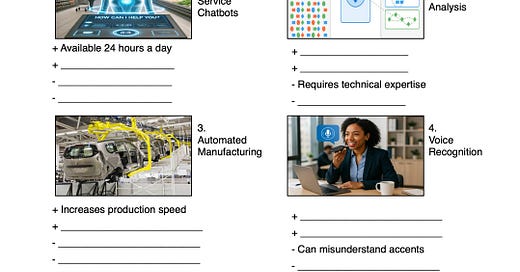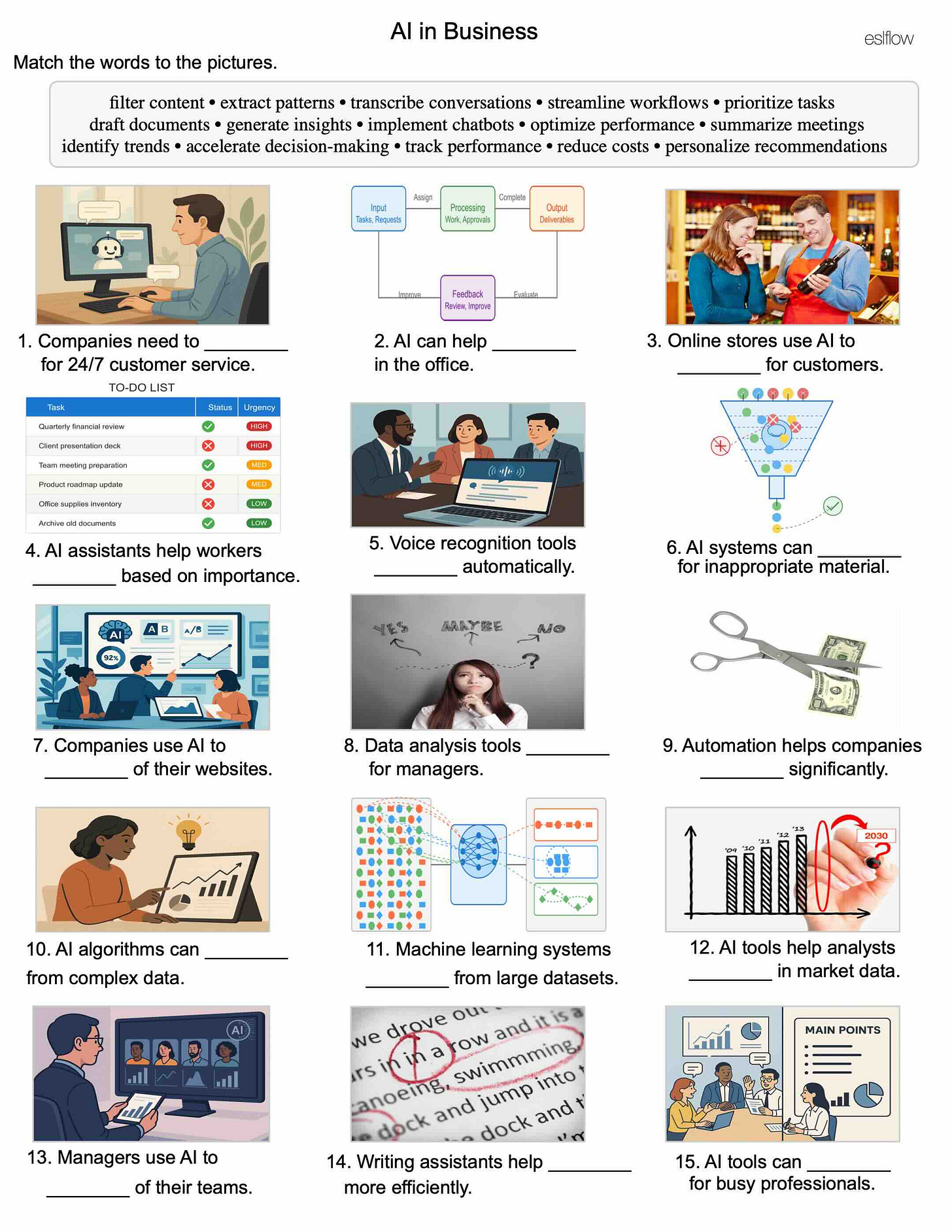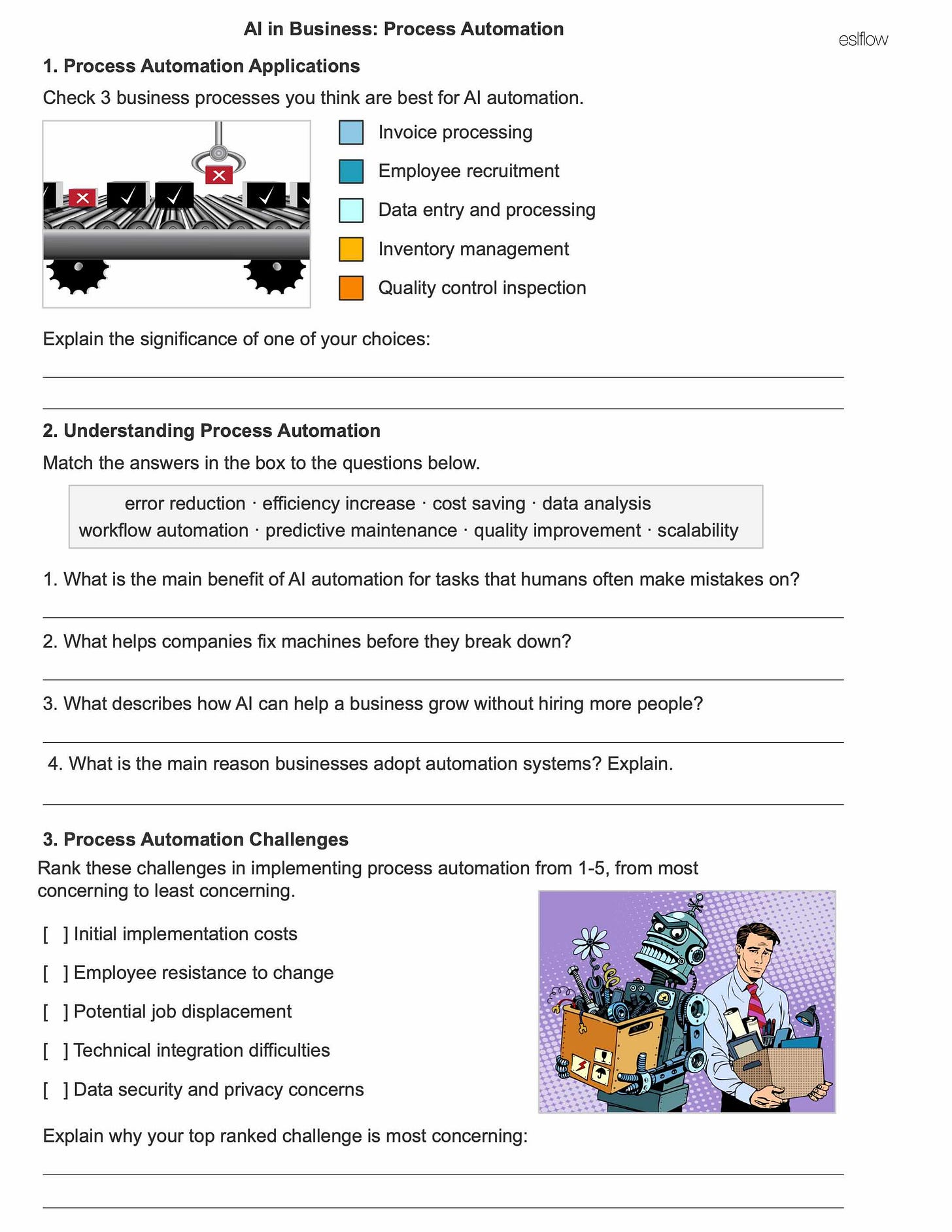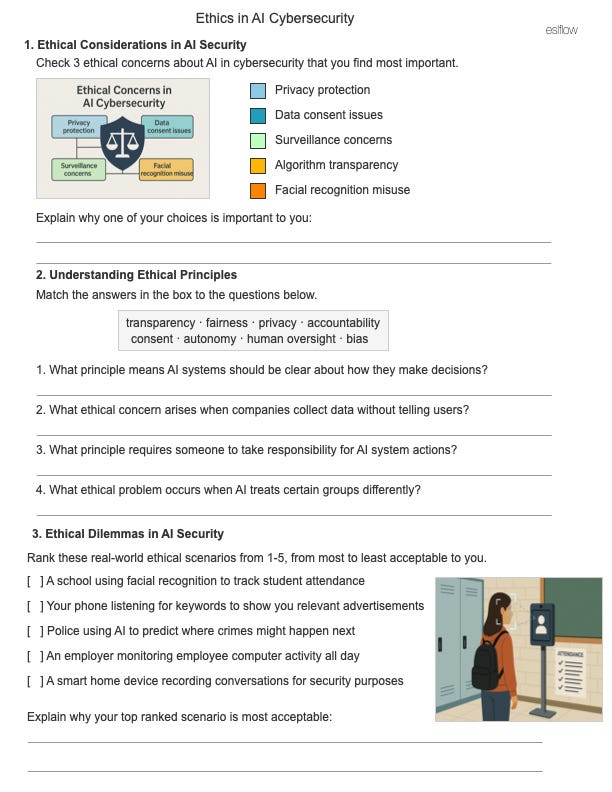Today's post features updated lessons. After taking time to consider the most engaging teaching approaches and experimenting with various techniques in the classroom, I've gradually reviewed and refined these topics that I first posted some time ago. These updated lessons include new collocations, critical thinking exercises, and listening activities. The critical thinking components expand into fascinating micro-topics.
Paid subscribers have access to download the complete materials at the end of the post.
Contents
1. AI in Business
Vocabulary Building
Brainstorm
Visual Basic Vocabulary
Basic Vocabulary Review Quiz
Parts of Speech
Word Formation
Verbs Quiz
Visual Collocations (with audio)
Communication Skills
Dialogue (with audio)
Expressing Opinions (with audio)
Grammar Role Play (with audio)
Analysis & Discussion
Advantages Disadvantages (with audio)
Critical Thinking
Customer Service Automation
Process Automation
Virtual Assistants
2. Cybersecurity
Fundamentals
Collocations
Visual Vocabulary (with audio)
Pronunciation
Vocabulary Quiz
Brainstorming
More Advanced Topics
Social Engineering (with audio)
Problem Solution (with audio)
Wrap (with audio)
Critical Thinking (7 topics)
General
AI Threats
Data Privacy in Social Media
Ethics in AI
Password Security
Phishing Detection Skills
Social Engineering Awareness
AI in Business: Advantages and Disadvantages
AI is reshaping business now, not in some distant future. This activity examines eight AI applications, exploring their benefits and limitations. The visuals bridge language gaps, making complex concepts immediately engaging.
AI in Business Visual or Collocations
I’m really into collocations at the moment. Collocations often capture the essence ot a topic. This sheet teaches the verb-noun combinations used in workplaces to discuss AI business applications. Students match visual scenarios with collocations, building language that transfers directly to real workplace communication.
AI in Business: Process Automation (Critical Thinking)
AI automation requires careful judgment, not just technical knowledge. This exercise challenges students to decide which processes deserve automation, identify key benefits, and prioritize implementation concerns. Students must explain their reasoning at each step, developing the critical analysis skills business leaders need when making automation decisions.
Cybersecurity Problem Solution
Digital threats target everyone with an online presence. This listening and/or brainstorming activity breaks down six common cybersecurity vulnerabilities businesses encounter daily. Students identify each threat's cause, consequence, and solution, building practical protection strategies for their digital lives. This exercise is accompanied by 2 audio files: one is slower and easier, the other is faster and more challenging.
Ethics in AI Cybersecurity
AI surveillance technologies require ethical judgments, not just technical understanding. This exercise asks students to prioritize concerns, identify key principles like transparency and consent, and evaluate real-world surveillance scenarios.







